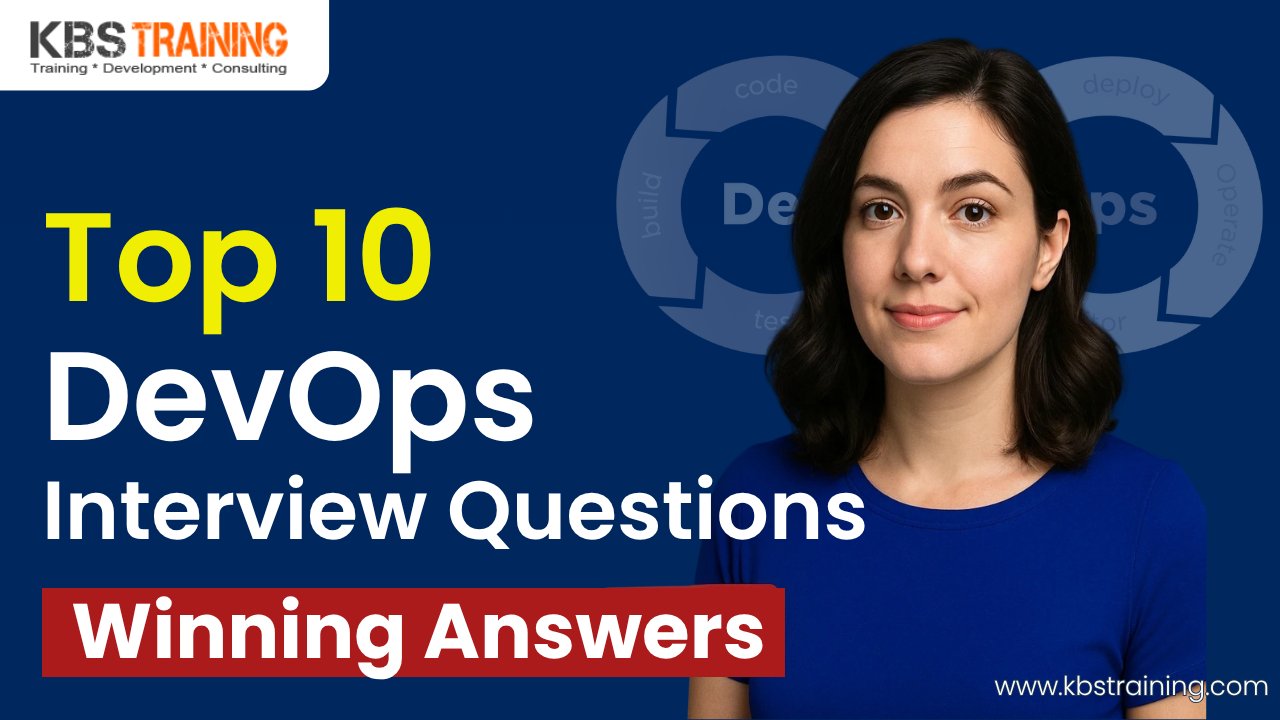Preparing for a DevOps interview? Whether you’re a junior engineer or a seasoned pro, you’ll likely face questions that test your understanding of both tools and culture. That’s because DevOps is not just about automation—it’s about bridging gaps between teams, improving workflows, and accelerating delivery.
Here are the top 10 DevOps interview questions, along with expert-crafted answers designed to help you stand out and demonstrate both technical know-how and cultural alignment.
1. What is DevOps and why is it important?
Answer:
DevOps is a cultural and technical shift that brings development and operations teams together. It emphasizes automation, continuous improvement, and collaboration to accelerate software delivery and improve reliability. By breaking silos and adopting shared responsibility, DevOps helps organizations respond quickly to market changes and customer needs.
Key takeaway: Highlight collaboration, automation, and business agility.
2. Explain the DevOps lifecycle.
Answer:
The DevOps lifecycle includes stages like Plan, Code, Build, Test, Release, Deploy, Operate, and Monitor. It forms a continuous feedback loop, where improvements are based on real-time monitoring and user feedback, allowing teams to iterate quickly and deliver better software.
Key takeaway: Stress iteration and continuous feedback.
3. What are some common DevOps tools?
Answer:
Some go-to tools include:
-
Version control: Git
-
CI/CD: Jenkins, GitLab CI
-
Containerization: Docker
-
Orchestration: Kubernetes
-
IaC: Terraform, Ansible
-
Monitoring: Prometheus, Grafana
It’s not just about tools—it’s about using them to improve flow and reduce friction in delivery.
4. What is Continuous Integration and Continuous Delivery (CI/CD)?
Answer:
CI involves frequently merging code to a shared repo and automatically testing it to catch issues early. CD extends this by automating the release process, ensuring safe and fast delivery to production. Together, CI/CD enable reliable, fast, and scalable software delivery.
5. How do you handle Infrastructure as Code (IaC)?
Answer:
IaC uses code to provision and manage infrastructure. I use tools like Terraform to define cloud infrastructure declaratively, enabling version control, consistency, and quick replication across environments.
Key benefit: Reduces human error and increases deployment repeatability.
6. Explain the importance of monitoring in DevOps.
Answer:
Monitoring ensures visibility into application and infrastructure health. Tools like Prometheus and Grafana help detect anomalies, prevent downtime, and plan capacity. Observability expands on this by enabling teams to ask detailed questions about system behavior.
7. How do you manage version control in DevOps?
Answer:
I use Git with branching strategies like GitFlow or trunk-based development. Code reviews through pull requests and enforcing code quality via automated checks are crucial practices for ensuring stability and collaboration.
8. How do you ensure security in your DevOps pipeline?
Answer:
By adopting DevSecOps practices—integrating security checks like static code analysis, dependency scanning, and secrets management into the CI/CD pipeline. Automation ensures security is continuous and not a last-minute patch.
9. What is your approach to handling rollbacks after failed deployments?
Answer:
I use strategies like blue-green deployments or canary releases. If a release fails, I can quickly revert to a stable version. Monitoring and alerting tools are set up to detect failures early, allowing fast rollbacks with minimal disruption.
10. How do you foster collaboration between Dev and Ops teams?
Answer:
Through shared tools, cross-functional teams, regular stand-ups, and a culture of empathy and shared accountability. Blameless post-mortems and documentation also help foster open communication and learning.
💬 FAQs
Q: What are the most essential skills for DevOps roles?
Skills in scripting, CI/CD, cloud platforms (AWS, Azure, GCP), containerization (Docker, Kubernetes), and problem-solving.
Q: Should I memorize tools or focus on concepts?
Focus on concepts. Tools change, but principles of automation, collaboration, and monitoring stay relevant.
Q: Are DevOps interviews purely technical?
No—soft skills, communication, and culture fit are just as important.
🎯 Final Thoughts
DevOps interviews don’t just test your technical chops—they evaluate your mindset. Be ready to show how you automate, collaborate, and adapt in dynamic environments.
With these top DevOps interview questions and answers, you’re one step closer to landing that dream role. And remember, the best answers show not just what you know, but how you apply it.
Consult Us Form: Click Here
Contact Us : WhatsApp
Register now for a FREE consultation to take your career to the next level
For Mail: Click Here | For More Info : Click Here

